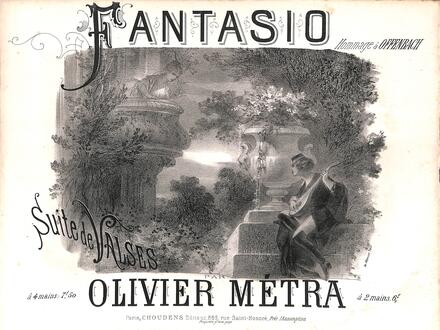Fantasio

Opéra comique in three acts and four scenes, premiered on 18 January 1872 at the Opéra-Comique.
Fantasio was Offenbach’s fourth attempt to conquer the prestigious Opéra-Comique in Paris—an endeavour that was not to be greeted with success until 1881, with the triumph of Les Contes d’Hoffmann. Staged a few days after the premiere of the spectacular opéra bouffe Le Roi Carotte, Fantasio treated Paris audiences to the complete opposite of that comic opera. The libretto is an adaptation of a play written by Alfred de Musset in 1833, then revised by his brother Paul for a performance at the Comédie-Française in 1866. In 1861, the writer had already inspired Offenbach to write La Chanson de Fortunio, a highly successful one-act opéra comique performed at the Bouffes-Parisiens. The composer was probably attracted by Fantasio’s comic yet melancholy vein. Both the play and the opera describe the trials and tribulations of a hero torn between contradictory emotions, a situation with which Offenbach probably identified. At the work’s premiere, this travesti role was played by the famous mezzo-soprano Célestine Galli-Marié, the singer who was later to create Carmen. The melancholy student, Fantasio, comes up with the plan to disguise himself as a court jester to get closer to the Princess Elsbeth, with whom he is in love. Fantasio’s disguise is echoed by that of the prince who is betrothed to Elsbeth and who dresses up as an aide-de-camp to meet his fiancée in the hope of inspiring her disinterested love. These stratagems lead to all kinds of stage devices: wig removals, clothes swaps, states of undress... Although the opera was a flop at the Opéra-Comique, Fantasio had some success in Vienna before disappearing from the opera stage until the beginning of the 21st century.

